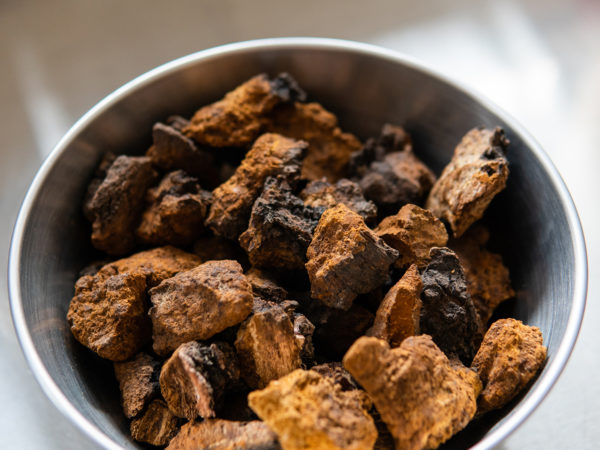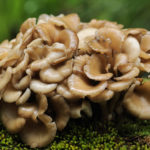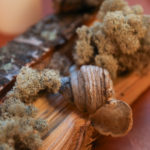Choose Chaga Mushrooms?
What can you tell me about chaga? I’ve read that this mushroom can boost immunity, lower blood pressure and cholesterol levels, kill cancer cells, reduce inflammation and sharpen the mind. All true?
Andrew Weil, M.D. | February 14, 2018

Chaga (Inonotus obliquus) has long been used as a folk remedy for cancer, tuberculosis, diabetes, and digestive diseases in Russia and elsewhere in northern Europe. This fungus is a parasite of birch trees that grow in cold climates at high latitudes in the northern hemisphere, in Russia, Korea, eastern and northern Europe, Canada and northeastern United States. It produces a fruiting body or “conk” on the trunk of the tree – a hard mass that looks like burnt charcoal. Traditionally, the conk is chopped and boiled into a medicinal tea. Chaga is sold in the U.S. in capsules, powders, liquid extracts, and tea bags. Fermented chaga is used in some skin care products designed to reduce irritation and redness. It is one of several species included in the mega mushroom line of skin-care products I helped develop for Origins.
The name “chaga” comes from a Russian word derived from the language of indigenous peoples living west of the Ural Mountains, who are believed to have been the first to use the mushroom for its health benefits. In the 16th-17th century, texts of traditional medicine mentioned it as a treatment for cancer, gastritis, ulcers and tuberculosis. Chaga became more widely known years later when Russian author Alexander Solzhenitsyn wrote about its healing powers in his 1966 book, Cancer Ward. (He won the Nobel Prize for literature in 1970.)
Although this unusual mushroom may have health benefits, we have only limited information about its effects from laboratory and animal studies. Some of this research has shown that compounds in chaga can kill cancer cells and stimulate the immune system, but we need clinical trials to confirm these findings. Other evidence suggests that chaga may help regulate production of cytokines, the immune system’s chemical messengers, and as a result may help control inflammation. One small study has shown that chaga can reduce markers of inflammation in humans.
A review from Memorial Sloan Kettering Cancer Center in New York warns patients taking blood-thinning drugs such as warfarin (Coumadin) to avoid chaga, because lab studies suggest that it may amplify the effects of these medications. Chaga preparations can also lower blood sugar too much in patients with diabetes who take drugs for this purpose.
While chaga appears generally safe, it is high in oxalates, compounds that may prevent the absorption of some nutrients, and it may be toxic in high doses. Researchers in Japan reported in 2014 that a 72-year-old woman with liver cancer developed kidney damage after taking four to five teaspoons of chaga mushroom powder daily for six months.
I suggest considering the mushrooms that I recommend here for their health benefits. These species are known to be safe, and we have evidence for their efficacy.
Andrew Weil, M.D.
Learn more: All About Mushrooms
Source:
Yahata et al, “Chaga mushroom-induced oalate nephropathy.” Clinical Nephrology, June 2014, doi:10.5414/CN107655














